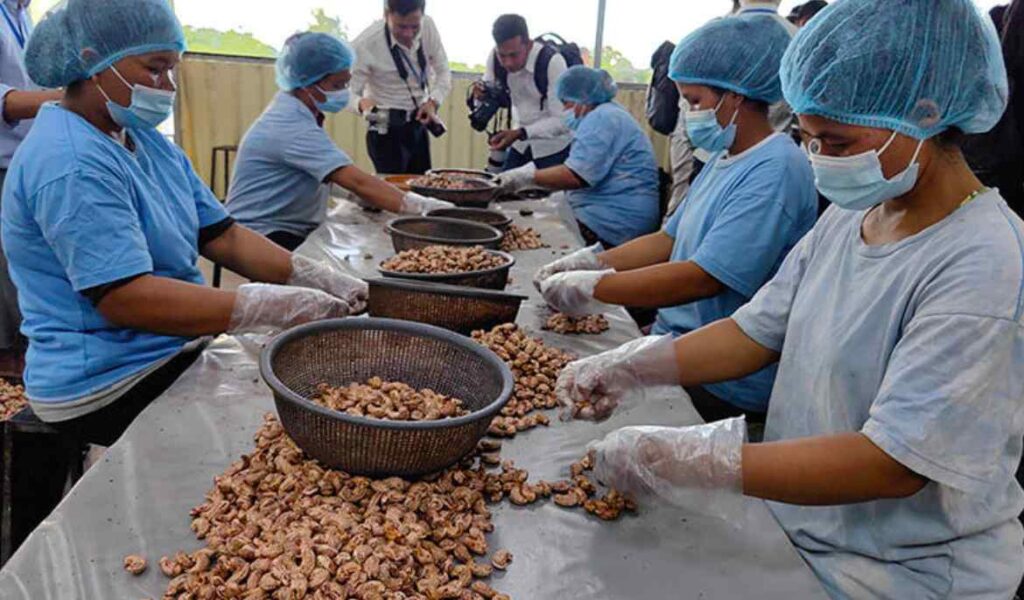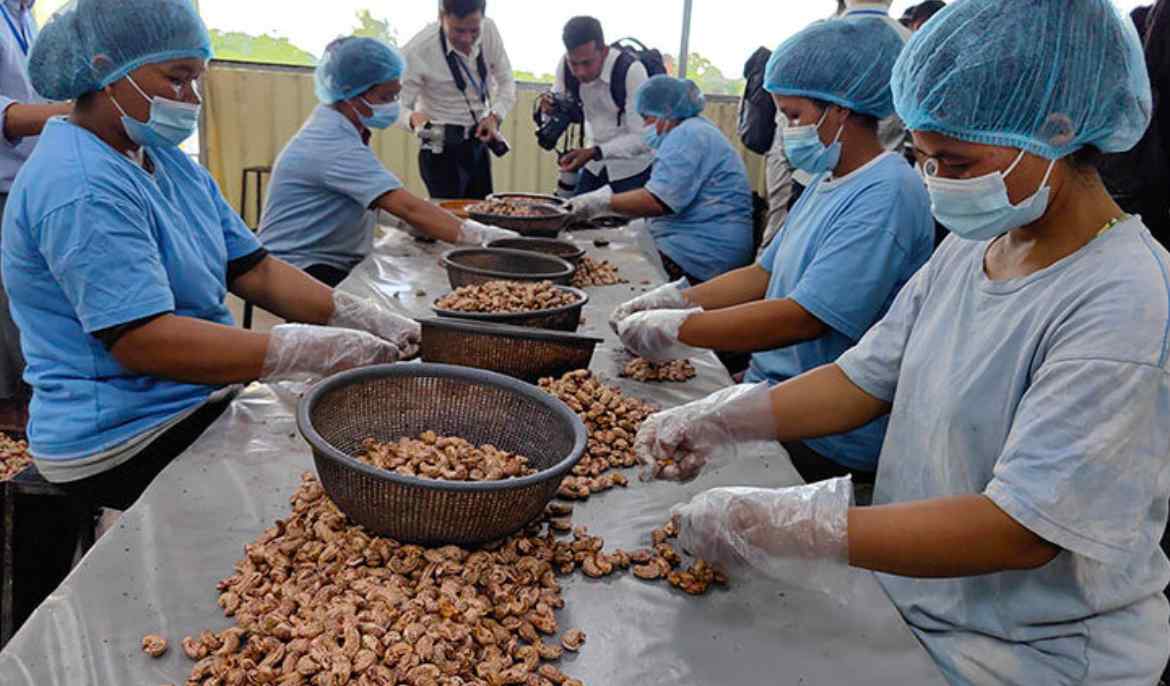Synopsis: With its favourable climate, expanding cultivation areas, and growing interest from international buyers, Cambodia is positioning itself as a principal player in the global supply chain of cashew nuts.
The Kingdom is a rising star in the global cashew nut industry, with demand for Cambodian cashews increasing from across the world, Foodbodia, an online marketplace dedicated to promoting and delivering high-quality Cambodian agricultural products, said in its recent study.
“Cambodia is emerging as a rising star in the global cashew nut industry. With its favourable climate, expanding cultivation areas, and growing interest from international buyers, the Kingdom is positioning itself as a key player in the global supply chain of cashew nuts,” the online platform said.
“This transformation presents a valuable opportunity for farmers, investors, and agricultural entrepreneurs alike.”
The study emphasised that cashew nut farming has gained momentum across several provinces, particularly in Kampong Thom, Kampong Cham, Ratanakiri, Kratie, and Mondulkiri. “Cambodia now has over 500,000 hectares of cashew plantations, with annual production reaching hundreds of thousands of tonnes.
“Many farmers are shifting towards cashew due to its resilience to climate change, relatively low water requirement, and high market value compared to other traditional crops.”
The statement added that cashew trees thrive in Cambodia’s tropical climate, which provides the ideal temperature, sunlight, and rainfall for high-quality yields.
“The sandy and slightly acidic soils found in the northeastern regions of the country are well-suited for cashew cultivation. This natural advantage reduces the need for heavy chemical use, supporting more sustainable and organic farming practices.”
On the flip side, it also highlighted the challenges faced by Cambodian cashew farmers. “Limited domestic processing capacity, price volatility in global markets and access to quality planting materials are key challenges.
“Addressing these gaps requires investment in infrastructure, farmer education, and technology-driven farming solutions. Partnerships between the public and private sectors, as well as support from development organisations, will be key to unlocking Cambodia’s full potential.”
Meanwhile, a study carried out by the International Labour Organisation (ILO) has highlighted a huge skills gap in the Cambodian cashew nut industry. “Post-harvesting techniques, cultivating challenges, improper storage, and limited reporting abilities have proved to create great challenges for the sector.
“There is limited knowledge of post-harvest handling, machine operation and processing facility management, which limits the productivity and efficiency of processing facilities. This is particularly seen in the skipping of certain value-added steps, such as roasting.
“This lack of knowledge, in conjunction with the use of outdated or inefficient machinery, results in processing that is suboptimal. This skills gap is particularly relevant for smaller processing facilities.”
The ILO study also revealed that many farmers are unaware of how to optimise cashew growth, and frequently use excess fertiliser or pesticides and inefficient planting and harvesting techniques.
The Kingdom exported cashew nuts worth over $700 million in the first six months of 2025, an increase of 56 percent compared to the same period last year.



